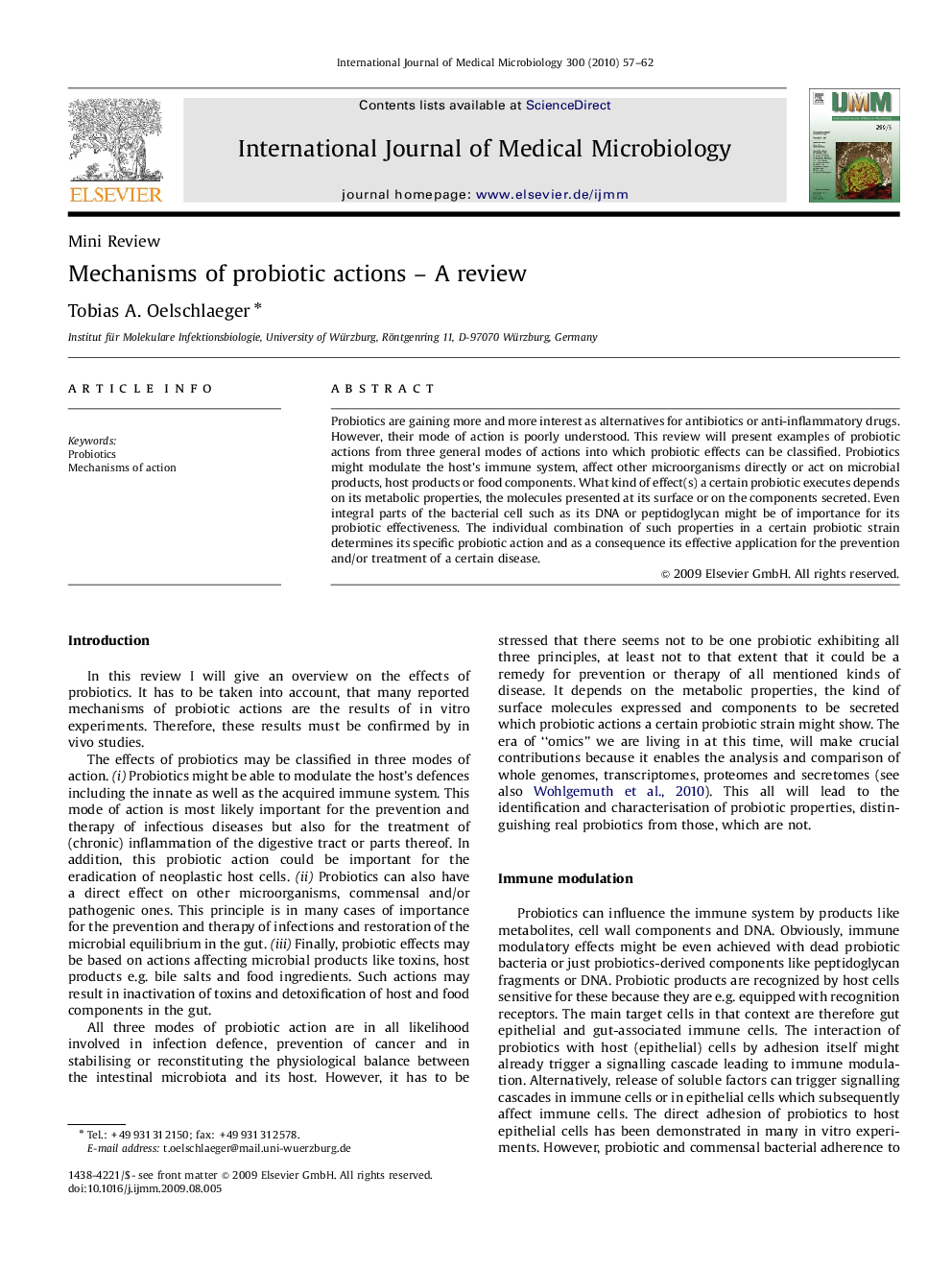| Article ID | Journal | Published Year | Pages | File Type |
|---|---|---|---|---|
| 2054499 | International Journal of Medical Microbiology | 2010 | 6 Pages |
Probiotics are gaining more and more interest as alternatives for antibiotics or anti-inflammatory drugs. However, their mode of action is poorly understood. This review will present examples of probiotic actions from three general modes of actions into which probiotic effects can be classified. Probiotics might modulate the host's immune system, affect other microorganisms directly or act on microbial products, host products or food components. What kind of effect(s) a certain probiotic executes depends on its metabolic properties, the molecules presented at its surface or on the components secreted. Even integral parts of the bacterial cell such as its DNA or peptidoglycan might be of importance for its probiotic effectiveness. The individual combination of such properties in a certain probiotic strain determines its specific probiotic action and as a consequence its effective application for the prevention and/or treatment of a certain disease.
